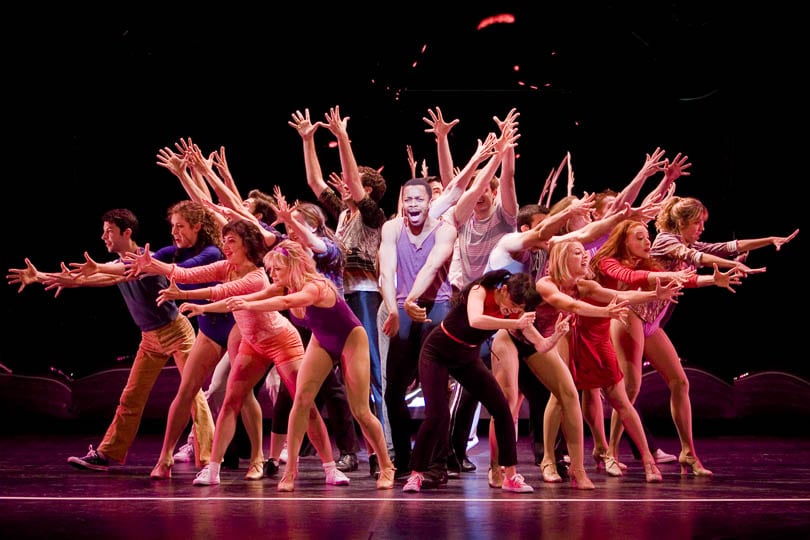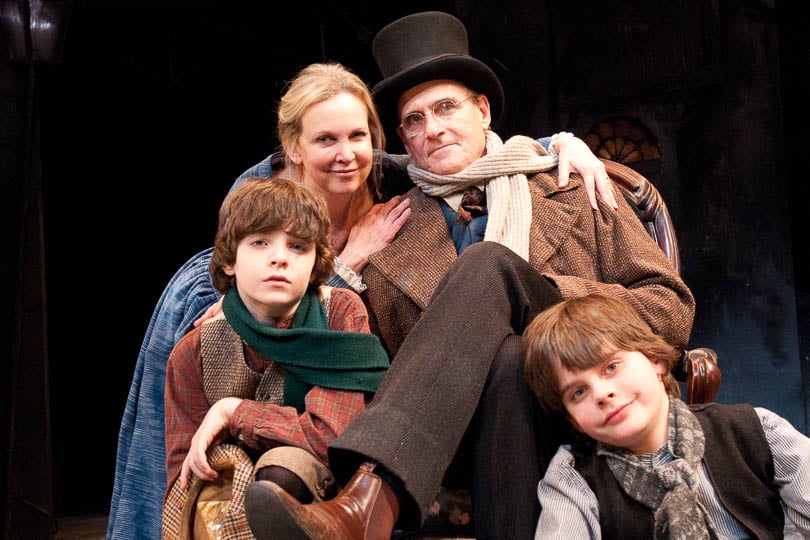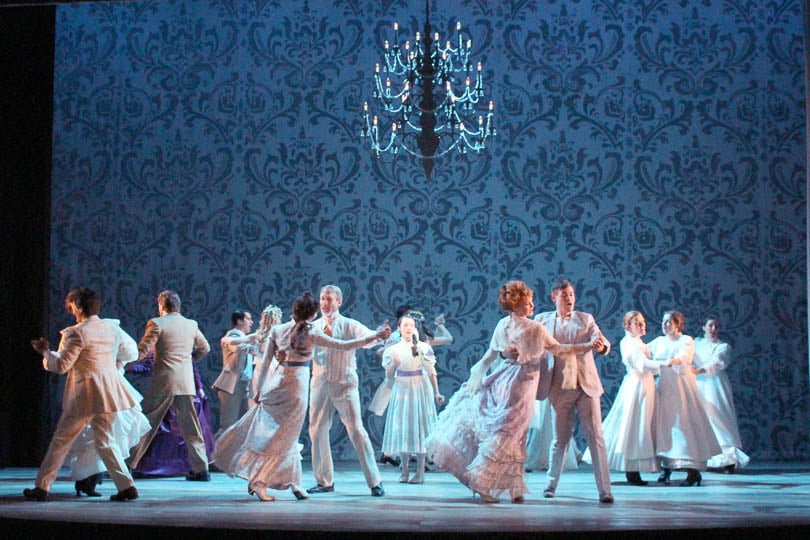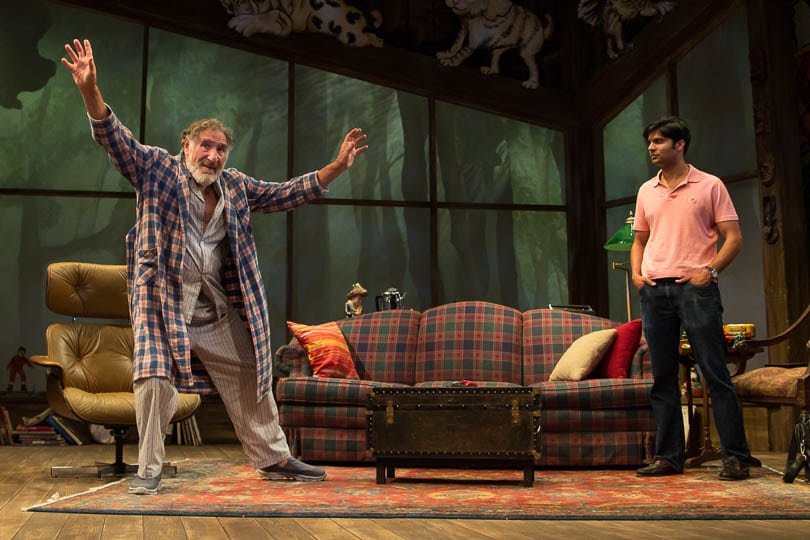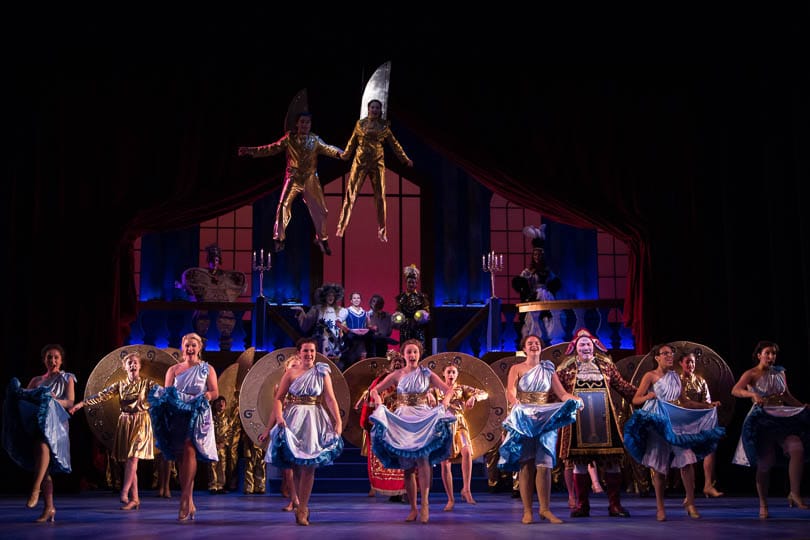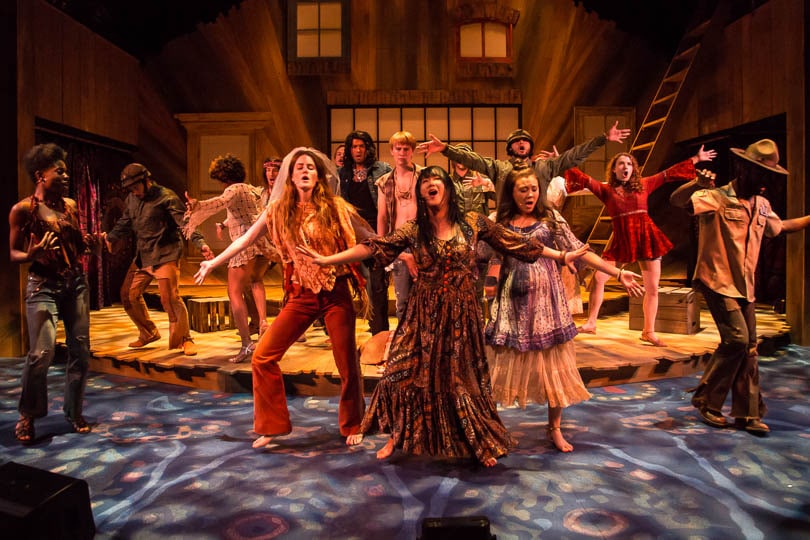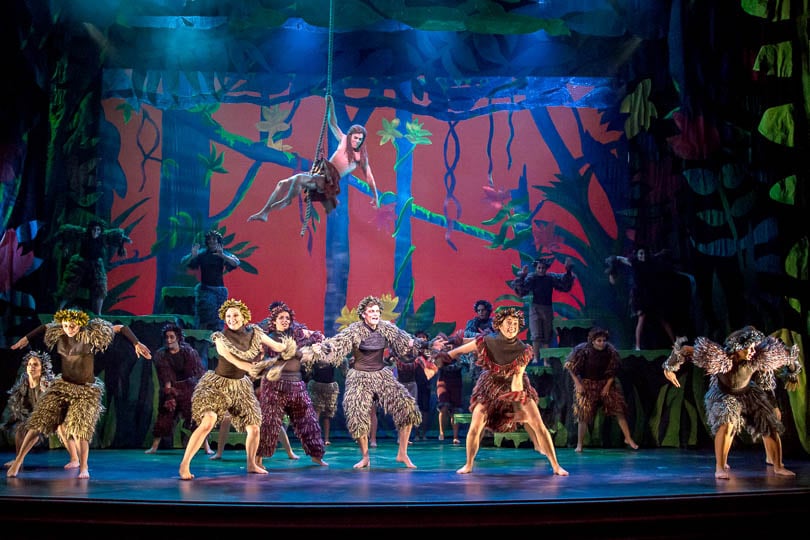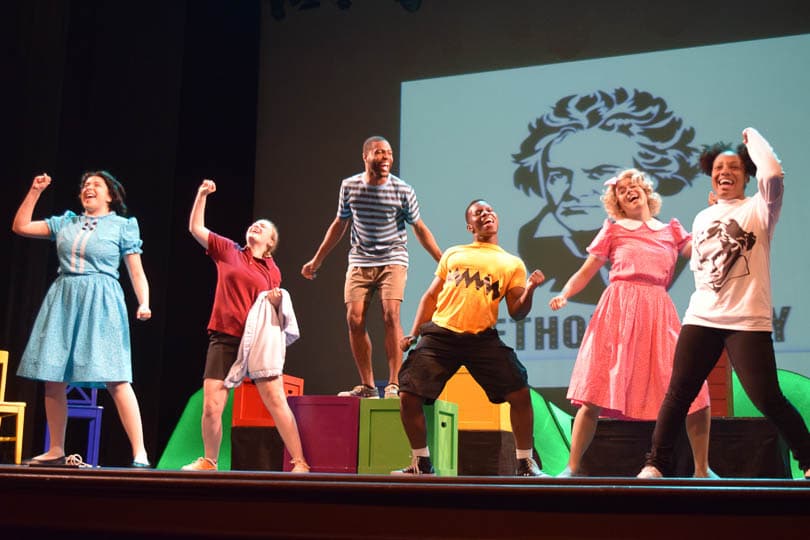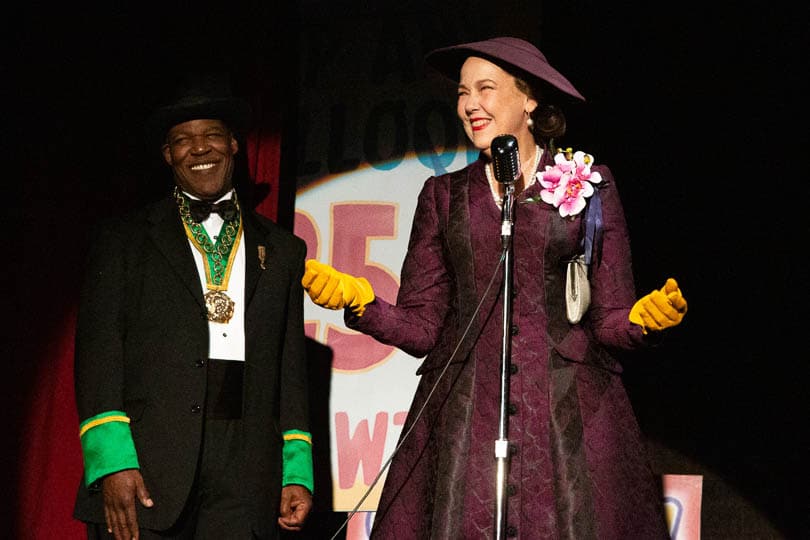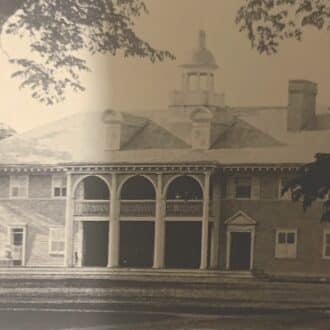Berkshire Theatre Group was created in 2010 by the merger of two of Berkshire County’s oldest cultural organizations, Berkshire Theatre Festival founded in 1928 in Stockbridge and The Colonial Theatre built in 1903 in Pittsfield. One of the largest and most exciting arts organizations in the area, BTG oversees the development, production and presentation of theatre, music and the performing arts.
On September 28, 1903, The Colonial Theatre, designed by J. B. McElfatrick, opened its doors. McElfatrick designed 220 theatres in total, 39 of which were on Broadway, and the Colonial is one of only a half dozen still standing. The Colonial Theatre was built in five and a half months and boasted pristine acoustics and classic gilded age architecture. As was sometimes the custom in that day, the exterior of the theatre was designed by a respected local architect, Joseph McArthur Vance, who also designed Pittsfield’s Masonic Temple, the Christian Science building, the superstructure of the Wahconah Park Stadium, Mount Greylock’s Bascom Lodge, and the Mahaiwe Theatre in Great Barrington.
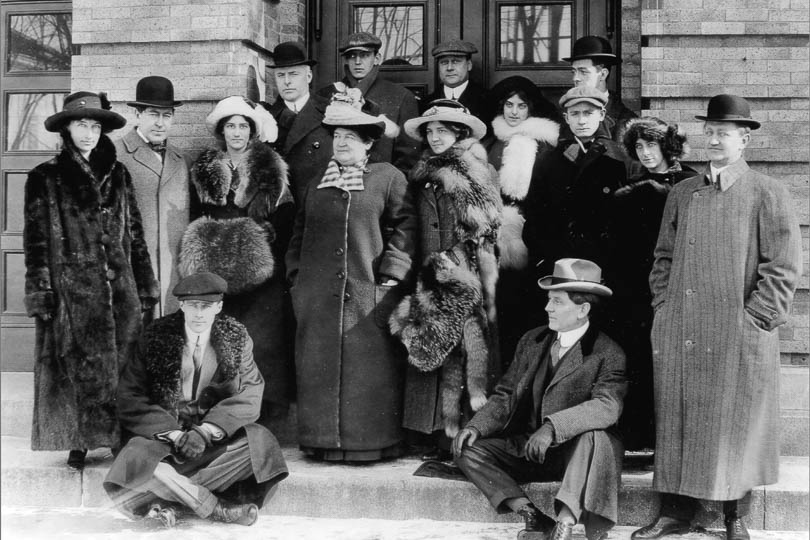
The Colonial Players
In 1912, the Colonial Players were founded. They were an in-house company that produced weekly shows from May through October. Edith Luckett, Ronald Reagan’s mother-in-law, was the original star of the Players. After extensive renovations, the perfect proportions of The Colonial Theatre were enhanced with state-of-the-art theatrical technology—footlights, border lights and a switchboard by the General Electric Company. Maude Adams, Ethel Barrymore, John Barrymore, Sarah Bernhardt, Eubie Blake, Billie Burke, George M.Cohan, Irene Dunne, Grace George, William Gillette, Walter Hampden, Helen Hayes, Al Jolson, Alfred Lunt and Lynn Fontanne, Julia Marlow and E.H. Sothern, Will Rogers, Lillian Russell, Ted Shawn, Noble Sissell, Ruth St. Denis, Laurette Taylor, Ed Wynn and many others performed on the Colonial stage throughout its life.
In 1927, The Colonial Theatre presented Eubie Blake in his own production of Shuffle Along. George M. Cohan also appeared in his hit, The Song and Dance Man. In a curtain speech Cohan praised Pittsfield and the Colonial as “his favorite theatre in America.”
In 1928, The Berkshire Playhouse was founded when Mabel Choate sold the Stockbridge Casino to financier Walter Clark. Clark immediately contacted three friends—Daniel Chester French, Dr. Austen Riggs and the New York Tribune’s theatre critic Walter Prichard Eaton—and together they formed the Three Arts Society. They moved the casino in pieces by horse drawn wagon to the far eastern end of Main Street to the bottom of Yale Hill, where it remains to this day. The Three Arts Society remodeled the casino’s interior by adding a stage and seating for 450 people, and christened the new theatre The Berkshire Playhouse. With the talented young actor Alexander Kirkland as its Executive Producer and F. Cowles Strickland as its Director, the Playhouse opened on June 4, 1928 with The Cradle Song, starring Eva Le Gallienne. Years later, her words of inspiration still provide guidance: “the theatre is a great force capable of spreading beauty and understanding.”
In 1929, during its second season, The Berkshire Playhouse launched a theatrical school, welcoming Jane Wyatt as one of their first students. Katharine Hepburn had small roles in two plays and James Cagney was in Oh, Boy! by P.G. Wodehouse.
In 1934, The Colonial Theatre closed due to the Great Depression and The Berkshire Playhouse began its search for a new director. Walter Clark called his four most loyal board members—Mabel Choate, Daniel Chester French, Austen Riggs and Walter Prichard Eaton—to determine the Playhouse’s future. In 1935, they decided to continue operations under the direction of 23-year-old Billy Miles, a bit actor during the Playhouse’s first season who later worked as a gofer for Strickland. The icing on the cake of that 1935 season was Zoe Akins’s Déclassée with Ethel Barrymore. Though she was 55 years old, 15 years older than she’d been when she’d played the glamorous role on Broadway in 1919, the Playhouse’s audiences were thrilled with Barrymore’s performance. In the years to come, Miles continued to pursue female stars. It was, as Brook Atkinson called it, “the Era of the Matriarch,” and featured the likes of Tallulah Bankhead, Ruth Gordon, Lillian Gish, Eva Le Gallienne, Peggy Wood, Ruth Chatterton, Shirley Booth, Kay Francis, Sylvia Sidney and Gloria Swanson. Billy Miles remained the Berkshire Playhouse’s director for 18 years.
In 1937, the Colonial reopened with a new marquee, projection room and two retail stores having been added to the front of the building, dramatically altering its classic lines. It operated primarily as a movie theatre, although some community performances continued until the day the theatre closed.
In 1951, the Colonial closed again due to the rise of TV and the decline of touring theatrical companies. In 1952, the Colonial was put up for auction. Although George Miller was the lowest bidder, he wanted to save the building rather than demolish it, and thus Miller Art Supply moved into what had been the orchestra level. One final performance, Curse You, Jack Dalton, was given by the Pittsfield Town Players on the Colonial stage on December 21, 1952. To accommodate a retail paint and art supply business, the orchestra floor was leveled and a drop ceiling was added, concealing—and preserving—the balconies and elaborate architectural details. The Miller family is credited for maintaining the structural and decorative integrity of The Colonial Theatre until the community was ready to bring it back into service as a community entertainment center.
In 1942, The Berkshire Playhouse was forced to close during the war; however, Miles kept the drama school open and, in his letter announcing the closure, stated, “the reason that the Playhouse cannot operate this year is the gas rationing…Our plan is to form with our student group a circuit theatre, to present a different full-length play each week of the season, playing a different town on each of four nights.” He wanted to ensure both that the students and patrons would be able to participate in theatre despite the harrowing times.
In 1964, The Berkshire Playhouse was reorganized as a non-profit organization and renamed Berkshire Theatre Festival. The board hired a new president— Stockbridge resident and playwright William Gibson—who had two Broadway hits to his credit: Two for the Seesaw and The Miracle Worker. Both had been directed by another Berkshire resident Arthur Penn, and had starred one of the country’s most outstanding actresses: Anne Bancroft. The Berkshire Playhouse was about to become a theatrical force amongst regional theatre across America. Not only did it have a new name, a new way of doing business, and a new president, but, with William Gibson, and his new artistic director George Tabori guiding it, the theatre had a new direction, a revitalized sense of creative vision and a bold excitement. Gibson had opened the door to theatrical experimentation, and BTF gallantly soared ahead, embracing what was to become the most fertile and dynamic period it had ever known.
The 1966 season opened with Thornton Wilder’s The Skin of Our Teeth, directed by Arthur Penn, and featuring Anne Bancroft, Alvin Epstein, Estelle Parsons, and, the youngest and least well known member of the company, Frank Langella. The only new play of the 1966 season was Murray Schisgal’s Fragments, with two old friends and former roommates who had both just completed making films that were to change their lives: Dustin Hoffman and Gene Hackman. A year later Dustin would receive an Oscar nomination for The Graduate and Gene would receive one for Bonnie and Clyde.
The following year, in 1967, Producer Peter Cookson joined Berkshire Theatre Festival, and the season was chosen by him, Arthur Penn and Gibson. Beatrice Straight appeared in A Streetcar Named Desire; Al Pacino played a juvenile delinquent and drug addict in Does A Tiger Wear a Necktie, a new play by Berkshire playwright Don Petersen, which went on to Broadway where the young, virtually unknown Pacino won a Tony for his performance.
In 1976, Berkshire Theatre Festival’s Playhouse was added to the National Register of Historic Places.
In 1979, The Berkshire Theatre Festival Board launched a nationwide search for a new artistic director, finally settling on a 29-year-old college drama teacher from Vermont: Josephine Abady. Josephine Abady remained at Berkshire Theatre Festival for nine years, and during that time produced only American plays, many of them revivals written prior to World War II, particularly the ’20s and ’30s. These productions included The Butter and Egg Man, The Petrified Forest and The Little Foxes. She also produced works by Stephen Sondheim, Arthur Miller, Clifford Odets, Christopher Durang, Edward Albee and Robert Anderson. Abady was instrumental in organizing the Berkshire Theatre Festival Archives, and worked with the Stockbridge Library to ensure that the history of BTF would be preserved. Abady was also responsible for expanding on the Theatre for Youth offerings of BTF. Developing out of a desire to fully engage all members of the community and make a positive impact on local youth, the Young Americans Playwright Program (YAPP) was established in 1984.
By the 1980s, BTF’s newer theatre, The Unicorn Theatre, became a home for new and experimental work and in 1992, and was a home to cabaret acts from New York City and workshop style productions. In 1996, The Unicorn Theatre was reopened after a lengthy renovation and became BTF’s official second stage. Early acting apprentices renovated a space in the old Mellen Barn to rehearse and perform scenes and monologues, advancing Berkshire Theatre Festival’s focus on training.
In 1994, Friends of the Colonial Theatre Restoration was formed by Bob Boland. In 1997, public tours of The Colonial Theatre led to increased community awareness of its potential. Then State Senator Andrea F. Nuciforo, Jr. of Pittsfield announced that the pending Commonwealth of Massachusetts Convention Center Bond Bill included $2.5 million in funding for the Colonial Theatre Restoration Project. Subsequent regular public tours of the building were scheduled by the Friends of The Colonial Theatre Restoration, Inc. and public sentiment about the value of the project to Pittsfield began to grow.
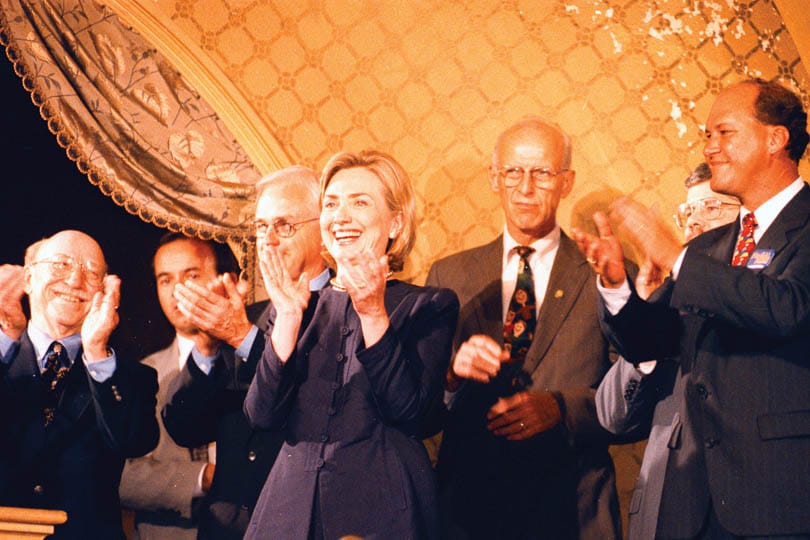
Hillary Rodham Clinton at The Colonial Theatre, 1998. Photo by Ben Garver.
In 1998, after many years of effort by the Friends of The Colonial Theatre Restoration, Inc. to have the theatre’s historic significance recognized by the community and the nation, The Colonial Theatre was designated a National Historic Treasure by the Save America’s Treasures Program of the National Park Service. Reinforced by a visit to Pittsfield by then First Lady Hillary Clinton, this designation provided national credibility to the plan to restore and operate The Colonial Theatre. Senator Nuciforo continued to secure additional Commonwealth support for the project as others built local momentum and plans for the theatre. At Berkshire Theatre Festival, 1998 was the year that Kate Maguire began her tenure as Artistic Director after working with Arthur Storch at BTF since 1995. During her first year as Artistic Director, she helped to overhaul and expand the education program with Allison Rachele Bayles.
In 2001, The Colonial Theatre was purchased from the Miller Family and, in 2004, The Colonial Theatre Association began the process of restoration by removing the temporary walls and ceilings and having the layers of paint analyzed to confirm that the original ornamentation matched its description in news reports from its 1903 opening. After years of design, planning, and community fundraising, the rehabilitation of the historic Colonial Theatre and the extensive renovation of the adjacent Berkshire Auto Garage were undertaken.
In 2006, the Colonial reopened after a $21 million restoration. The twenty-two-month construction process preserved and reinstalled all historically significant architectural and design features while creating a modern performance center equipped to handle the needs of artists and audiences alike. Audiences were awed by the vaulted gilded entrance, the elaborately decorated boxes and balcony, the meticulously crafted custom plasterwork, and the exquisitely painted ornamental detail. The upper Gallery level preserved the original rare high-backed “pew” seating from which the view of the original “sail vault” over the proscenium, complete with its restored central mural featuring the muses of art and music, could once again inspire all who saw it. The inaugural performance was a touring production of RENT.
At Berkshire Theatre Festival, 2006 was the first year that A Christmas Carol was produced, and was the start of the annual Holiday Show tradition. In 2007, singer-songwriter James Taylor returned to the Colonial for 3 days in July to record his One Man Band tour for world-wide TV and home video release. Joining him was Larry Goldings (his keyboardist and sole band member for the tour). Also, legendary theatre and film score composer and pianist Marvin Hamlisch performed on September 8th at the Colonial’s annual Gala celebration.
In 2010, Berkshire Theatre Festival and The Colonial Theatre merged to create Berkshire Theatre Group. As Kate Maguire, Artistic Director, CEO, said “Berkshire Theatre Festival and the Colonial share the distinction of having provided an artistic home for the Lunts and the Barrymores; each are registered as National Historic Landmarks. The combined stories of these theatres provide a mirror of insight to the American Theatre—indeed they represent the strength of the American story and capture the essence of our understanding that the arts provide doorways to growth and windows to all that lies in the human heart.” This merger also allowed Berkshire Theatre Group to expand upon the Year-Round Education Program developed at BTF in 1998, as education and community engagement is at the heart of Berkshire Theatre Group’s mission.
In 2011, Berkshire Theatre Group opened The Garage, located in the lobby of the Colonial. Its name pays homage to its former owner, Berkshire Auto Co. Garage. This newly developed venue, complete with stage, lights and sound system, is BTG’s dedicated venue for local and regional music performers. Additionally, 2011 was the first year that A Christmas Carol was performed at The Colonial Theatre in Pittsfield. To mark the momentous transition, James Taylor starred as Bob Cratchit.
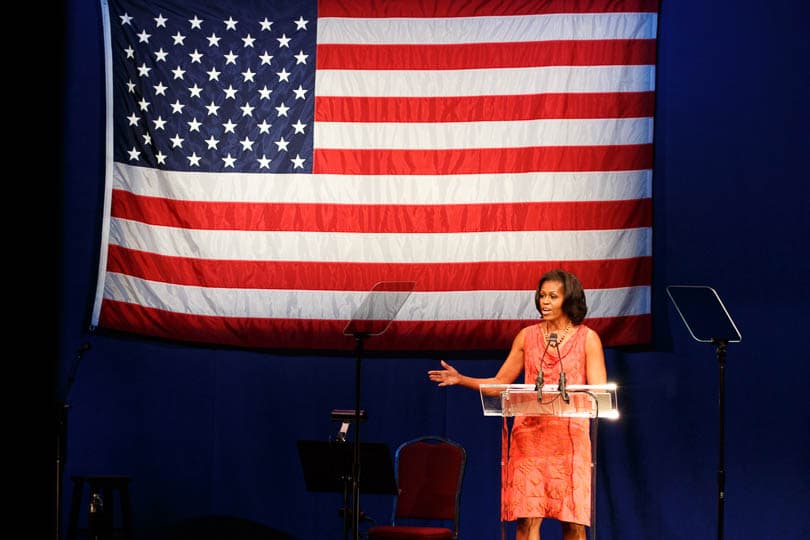
First Lady Michelle Obama at The Colonial Theatre, 2012. Photo by Michael Blanchard Photography.
In 2012, First Lady Michelle Obama spoke at The Colonial Theatre as a part of President Obama’s re-election campaign. In 2016, Berkshire Theatre Group offered its first sensory-friendly performance of the annual holiday production, A Christmas Carol. The performance was designed to create an environment where people with autism or sensory needs, along with their families, can enjoy coming to the theatre together and will feel comfortable, supported and free to be themselves. During this time, Berkshire Theatre Group also began to expand its year-round offerings at The Colonial Theatre and The Garage with a variety of musical and comedic performances.
2018 was a landmark year for Berkshire Theatre Group: Berkshire Theatre Festival celebrated its 90th anniversary and The Colonial Theatre celebrated its 115th birthday. A gala was held, which celebrated the myriad stars of stage and screen that had tread the boards of The Berkshire Playhouse over its nine decades of production history. BTG was also awarded an UP (Universal Participation) designation through the Massachusetts Cultural Council in 2018 for their commitment to accessibility and dedication to continually work to create an accessible and inclusive theatre for all.
In 2019, Berkshire Theatre Group saw a year of tremendous growth. With 75,000 patrons and 13,000 students served, Berkshire Theatre Group was able to reach more people than ever before. BTG PLAYS! Year-Round Education Program expanded to include elementary and middle school productions in the Spring and Fall. Also in 2019, the $1 million restoration of The Thaddeus Clapp House was completed thanks to the generous support of dozens of individual donors as well as the City of Pittsfield’s Community Preservation Act Program and the Massachusetts Cultural Facilities Fund, a program of the Commonwealth of Massachusetts, administered through a collaborative arrangement between Mass Development and the Massachusetts Cultural Council.
2020 was a year unlike any other in Berkshire Theatre Group’s history. At the start of the year, BTG was gearing up to celebrate the 10-year anniversary of the merger between Berkshire Theatre Festival and The Colonial Theatre. As the year progressed, and the WHO declared Covid-19 a global pandemic. Berkshire Theatre Group, Broadway, and theatres across the country began to go dark and announced closures as efforts to reduce the number of cases of Covid-19. Throughout 2020, BTG persevered and began online programming and virtual learning initiatives to continue to foster growth and connection. When the national attention shifted to the growing awareness of racial inequity in the country, and the protests that began in late May, Berkshire Theatre Group began posting poems by Black Artists as a means to amplify Black voices and to stand in solidarity with the Black Lives Matter Movement.
In July 2020, Berkshire Theatre Group was the first theatre in the nation to be granted municipal, state and Actors’ Equity Association permission to produce a live musical: Godspell. This announcement was picked up by the New York Times, Playbill, and news sites throughout the nation. Berkshire Theatre Group also re-streamed Black Theatre United’s Virtual Town Halls. This is one of the ways in which Berkshire Theatre Group is working to listen to, grow, and promote Black voices. Berkshire Theatre Group was able to innovate and create opportunities for safe, live performing arts throughout 2020 including, Bobbie’s Summer Series, Bobbie’s Fall Series, The Naughton Family in Concert, Brian Stokes Mitchell Outside at The Colonial, and Truman Capote’s Holiday Memories.
In 2021, Berkshire Theatre Group is once again created safe and dynamic outdoor performance spaces in both Pittsfield and Stockbridge, and kicked off live performances with the Spring Colonial Concert Series Outside Under the Tent. Berkshire Theatre Group also once again partnered with Hershey Felder on a series of virtual productions that served as benefits for BTG.
